Meet our pioneer: Mariia Turchina
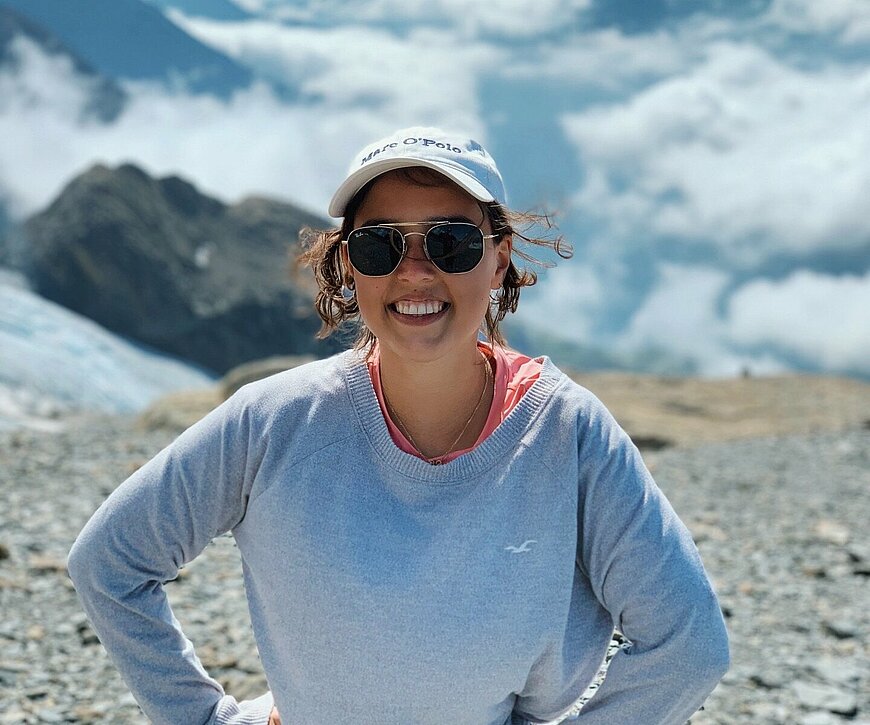
In Brainport Eindhoven we change the world because here we develop key technologies that change society. We can only do that because of our pioneers. Therefore, we would like you to meet one of our pioneers: Mariia Turchina.
Who are you?
I am Mariia Turchina, I am 23 years old and I am originally from Russia. I have been living in Eindhoven for some time now.
What do you study?
I’m in the third year of my bachelor’s in Applied Mathematics at the TU/e. During this study, we create many theoretical concepts and sometimes apply those to develop models for specific applications.
I recently graduated from the TU/e Honors Academy, which is a 2-year extracurricular program in which you participate in projects or competitions. I chose the track Artificial Intelligence.
"I just wanted to go abroad. I started dreaming about it when I was only about ten years old."
Mariia Turchina
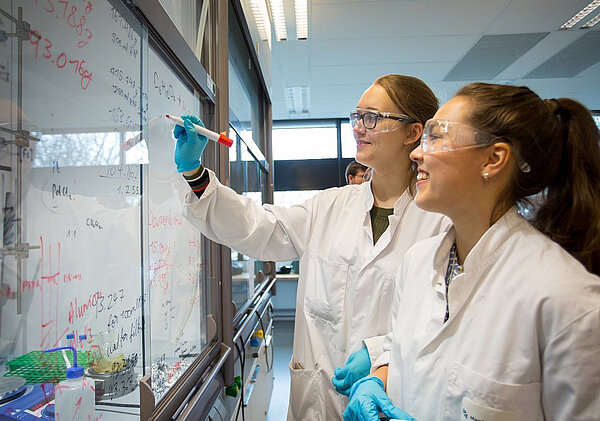
Why did you choose this study?
Before this study, I also did a year of bachelor’s in Automotive Engineering Technology (and Electrical Engineering) at the TU/e, a year of Physics at Maastricht University, and a bit of Computer Science. For a long time, I didn't know in which field I wanted to study. I found it all interesting, but not interesting enough to focus on that solely. I wanted to do a more multidisciplinary education. Eventually, I decided Mathematics was the most logical study because it can be applied to almost everything later on.
Why did you choose TU/e?
At first, I wanted to go to the UK or the US, because I already spoke English and didn’t have the time to learn a new language. But then I discovered that a study there was too expensive and so I looked at studies in Europe. At the time, in the majority of the countries, master’s programs were in English but the bachelors were not. Then it occurred to me that two cousins were studying in the Netherlands and they didn't speak Dutch either. So that's how I ended up in the Netherlands. First I studied at Maastricht University for a year, but the study wasn’t technical enough for me. I then applied for the TU Delft and the TU/e, and, in the end, I opted for the TU/e.
Wasn't there a comparable study available in Russia?
In Russia I had it all figured out. I already had a job in a lab and a clear career ahead of me. There were even professors who wanted to support me. But I just wanted to go abroad. I started dreaming about it when I was only about 10 years old. And besides, my achievements in Russia would not be entirely mine because of all the support I already had. And what counts is that I don't feel at home in Russian society. I just look at life differently. It ranges from clothing style, in which you have the freedom to express yourself, to gender equality: it’s about general freedom of expression and being who you are, authenticity. I went to the top school in Russia, Presidential Physics & Mathematics Lyceum, which was completely monopolized by men. There were only a few girls in my class of about 30 students. Girls were always treated as less intelligent and even bullied by teachers sometimes. I wanted to escape that.
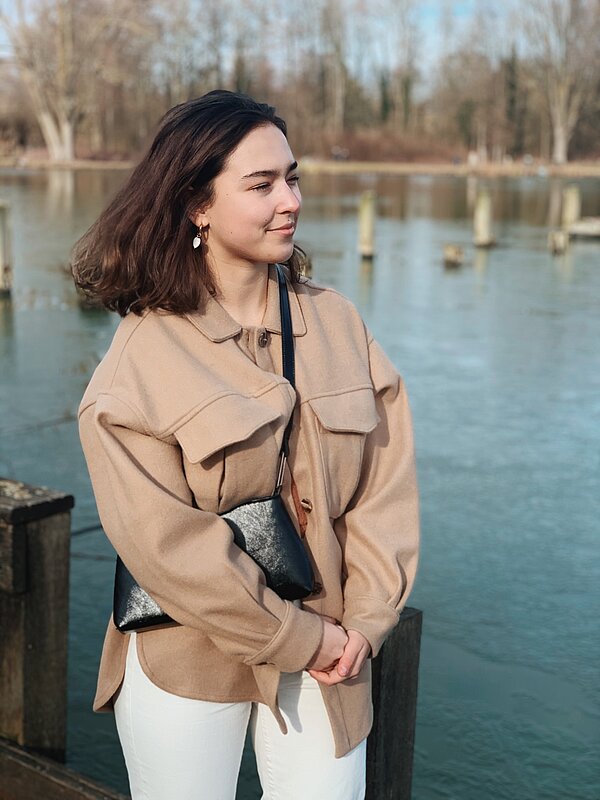
Are you going to do a master's after this?
I would like to skip a master's degree and go straight for a PhD. In the Netherlands, that’s not possible, but in some other countries, it is. After my PhD, I want to come back to Europe, likely even to the Netherlands. I'm just a bit tired of studying because I've already done some other studies before this bachelor's degree.
What kind of PhD would you like to do?
I want to do a PhD in Computational Neuroscience. I’m looking for a project in which I can research the nature of our intelligence, learn the mechanisms behind learning, and how we can improve it with technology.
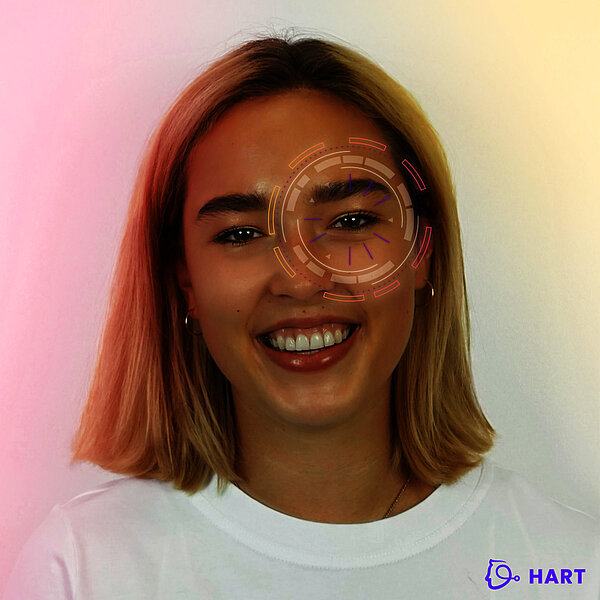
That sounds exactly like what Team HART is doing.
That's right. As founder of Team HART, I wanted to work on human augmentation and focus on cognitive processes in particular. To my knowledge, there was no existing student team working on this, so I decided to set up a team together with Victor Brouwers, whom I knew from the Honors Academy. To be accredited, we had to write a kind of business plan, in which we described what our vision is, what the short-term and long-term goals are, what we can contribute to the TU/e and the Brainport region, how the structure of the team looks like, and what potential partnerships are.
The focus of our team is on improving the human body. We focus on researching and developing technology as well as trying to normalizing the concept of human augmentation. A lot of people don't know much about it:they immediately think of invasive surgeries and cyborgs, but it's not necessarily that.
Currently, our goal is to add new senses to the human body. For example,the sense of feeling can be utilized much more than it is now. For the brain, it doesn't matter where the signal comes from. Our senses and feelings are a series of electrochemical signals according to specific patterns. If we are exposed to these particular patterns for long enough, we start to interpret them subconsciously. For now, we have developed a sleeve with which you can understand all languages. We recently won the TU/e Contest Award for student teams!
"I am seriously considering a career in academia: I want to be a university professor."
Mariia Turchina
What do you want to do next?
I want to do a postdoc after my PhD. I am seriously considering a career in academia: I want to be a university professor. Alternatively, I also like the idea of researching the industry. In any case, I want to work at the intersection of Artificial Intelligence and Neuroscience. It is a relatively new field. It interests me a lot, and I hope I can contribute.
"My main driving force is having an impact on the future of humanity."
Mariia Turchina
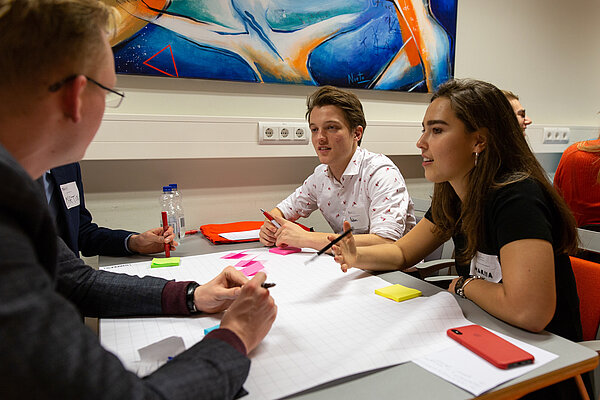
What do you find important about a job?
I have a big passion for research, so it’s rather important for me that I can do it. It does, however, come with a set of challenges: you then need to apply for grants and prove yourself time and time again. And, of course, the people you work with make all the difference. Right now, I am lucky enough to be working with an amazing team at HART, and I hope to preserve this luck. Another thing I learned about myself is that I can’t deal with routine well, so I love trying new things and travel a lot. So, it’s always preferable for me to work flexibly in terms of both subjects and times. I am a night owl.
My main driving force is having an impact on the future of humanity and creating a favourable future for our race. For example, it would be amazing to fight a neurological disease. I won't be able to do that immediately, but maybe, at some point, my insights can help with the development of drugs and technologies to enhance the brain, for example. With my work, I want to increase the knowledge about the human brain so that others can build on it.
"If you want to do something, you have an opportunity to do so. There are plenty of options for everyone. And if there are none, you can create your opportunities."
Mariia Turchina
What do you think about studying and living in Brainport Eindhoven?
I feel at home here. I believe that about 96% of people speak English, so I have no problems communicating except sometimes with the elderly, but that doesn’t happen very often. Even though most of my friends here are Dutch, they are all very welcoming, and I never feel like I don't belong. I also understand a tiny little bit of Dutch, but I find it more difficult to speak. I took some online Dutch language courses because I want to be able to communicate with the whole family of my Dutch boyfriend and I will start proper Dutch courses soon. I hope to become a Dutch citizen one day.
What I like about studying here so much is that if you want to do something, you have an opportunity to do so. There are plenty of options for everyone. And if there are none, you can create your opportunities, for example, by setting up your student team. Just go for it, I guarantee you won’t regret it!
However, when it comes to education, I am not as happy, but it’s not TU/e’s fault. I believe the education system in general needs to change. It should be more personalized and even more challenge-based, although I heard TU/e is working on it. Furthermore, I don't think the grading system is a good reflection of your intelligence or knowledge, and exams have been proven ineffective on numerous occasions. So, education is an interesting topic for me, and I would like to ome up with alternative approaches and stimulate some change there if I can.
"The possibilities of exploration here have helped me to figure out what I can and want to do."
Mariia Turchina
What else would you like to tell (future) students in Brainport Eindhoven?
I would like to encourage others to come and study or work in Eindhoven. If you strive to develop yourself in something, there is a place for you, no matter if you already know exactly what you want to do or you are like me, who needs quite a bit of a journey. The possibilities of exploration here have helped me to figure out what I can and want to do.